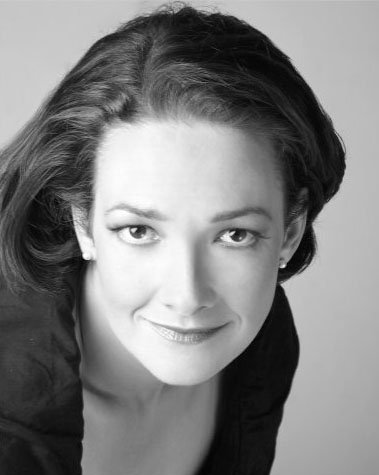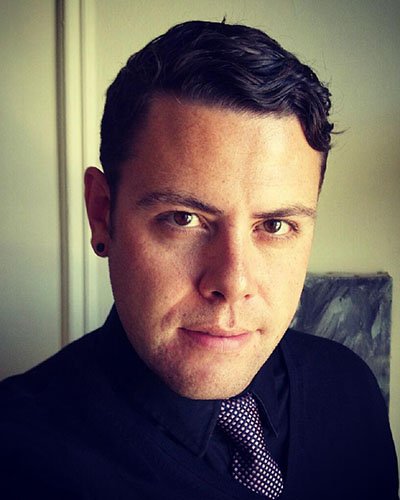Cantata Collective Program 7
February 24, 2019
Johann Sebastian Bach (1685-1750)
Schwingt freudig euch empor, BWV 36
1. Chorus: Schwingt freudig euch empor
2. Aria: Die Liebe zieht mit sanften Schritten
3. Aria: Willkommen, werter Schatz!
4. Aria: Auch mit dedämpften, schwachen Stimmen
5. Chorale: Lob sei Gott, dem Vater, g'ton
Meinen Jesum lass ich nicht, BWV 124
1. Chorus: Meinen Jesum lass ich nicht
2. Aria: Solange sich ein Tropfen Blut
3. Recitative: Doch ach!
4. Aria (Duet): Entziehe dich eilends, mein Herze, der Welt
5. Chorale: Jesum lass ich nicht von mir
Tonia D'Amelio, soprano
Heidi Waterman, alto
David Kurtenbach, tenor
Sepp Hammer, bass
Marc Schachman, oboe d'amore
Kati Kyme & Lisa Weiss, violins
Anthony Martin, viola
William Skeen, cello
Kristin Zoernig, bass
Henry Lebedinsky, organ
Guest Artists
Tonia D'Amelio
Called “extravagantly charismatic” by the San Francisco Chronicle and praised by Fanfare Magazine for her “rapt vulnerability”, soprano Tonia D’Amelio has sung with opera companies, orchestras, chamber ensembles, and vocal consorts across the U.S. and abroad.
A versatile singer with a repertoire spanning five centuries, Tonia has participated in several opera and concert premieres. She created the role of Celia Brooke in Allen Shearer’s Middlemarch in Spring for both the world premiere in San Francisco and the revival with Charlottesville Opera, and sang in the first performance of Ryan Brown’s oratorio Mortal Lessons at the 10th annual Switchboard Music Festival. Tonia also sang featured roles in the modern stage premieres of Rameau’s The Temple of Glory (1745) with Philharmonia Baroque Orchestra, and Pallavicino’s The Amazons (1679) with Ars Minerva.
Other favorite credits include Drusilla in Monteverdi’s L’Incoronazione di Poppea with West Edge Opera, cantata recitals with Los Angeles Baroque Players, Mendelssohn’s Lobgesang with Philharmonia Baroque Orchestra, and liturgical performances of Monteverdi’s Vespers of 1610, Mozart’s Requiem, and J.S. Bach’s St. John Passion, as well as guest artist stints at the William Byrd Festival in Portland, Oregon, and the Edington Festival of Music within the Liturgy in Wiltshire, U.K.
Heidi Waterman
With a voice that has been praised for its’ “…rich, lustrous tone and gorgeous legato,” Heidi L. Waterman has enjoyed a wide-ranging career encompassing everything from film scores to early music to modern opera, and has performed as a soloist with nearly every major Bay Area ensemble including the San Francisco Symphony, San Francisco Opera, Philharmonia Baroque Orchestra and Chorale, and San Francisco Bach Choir. Recent highlights include Bach’s Christ lag in Todesbanden and Handel’s Dixit Dominus (Schola Cantorum), St. John Passion (S.F. Bach Choir), Purcell’s Te Deum and Jubilate (Philharmonia Baroque Orchestra and Chorale), Mendelssohn’s Elijah (Marin Oratorio and North Valley Chorale), and the (small but mighty) role of a Muse in Philharmonia Baroque’s magnificent production of Rameau’s opera Le Temple de la Gloire.
David Kurtenbach
DAVID KURTENBACH, tenor, described in “warm and intimate” performances as having a voice “lined with silver,” enjoys an active choral and solo career, having appeared as soloist with Philharmonia Baroque Orchestra, Bach Collegium San Diego, American Bach Soloists, Oregon Bach Festival, Ensemble VIII, Apollo’s Fire, Magnificat, Volti, and the Grace Cathedral Choir of Men and Boys. Also a devoted fan of new music, Kurtenbach has premiered works by James MacMillan, Meredith Monk, David Lang, Dave Brubeck, Kirke Mechem, Eric Banks, and Moses Hogan. His recordings may be heard on Innova/Naxos, Koch International, Tonehammer, Pro Organo, and Soli Deo Gloria.
Mr Kurtenbach is also an experienced conductor, having served as Chorus Master and Assistant Conductor at Opera San Jose and Festival Opera, as well as preparing and conducting symphony choruses in Oakland and across the country. As a teacher and lecturer, he taught master classes in voice, choral conducting, and vocal accompanying at Oberlin Conservatory and San Francisco Choral Society, and for the last nine years, was appointed Instructor of Voice and Music Theory at Grace Cathedral in San Francisco, serving as chief music educator for boy choristers and clergy. Exploring a ministry to sacred music, he often serves as Conductor, Organist, Cantor, and Officiant for Cathedral services, including conducting a recent performance of 220 voices for the Presiding Bishop of the Episcopal Church.
Sepp Hammer
Sepp Hammer’s voice has been described as showing “warm baritone gravity” (The Boston Globe). His recent concert engagements include the role of Jesus in Bach’s St. Matthew Passion with California Bach Society, Rutter’s Mass of the Children with Solano Symphony, Zelenka’s Gloria with Chora Nova, Vaughan Williams’ Five Mystical Songs with Contra Costa Chorale, and, with various ensembles, Charpentier Messe des Morts, Schütz Symphoniae Sacrae, Bach Magnificat, Bach B Minor Mass, Haydn Lord Nelson Mass, Schubert Mass in G Major, Brahms Requiem, Fauré Requiem, and Duruflé Requiem.
On the opera stage, Sepp’s roles include Aeneas in Dido and Aeneas, the title role in Don Giovanni, Count Almaviva in Le Nozze di Figaro, the Speaker in The Magic Flute, and John Proctor in The Crucible. Sepp holds a master’s degree in vocal performance from New England Conservatory and is a member of the Philharmonia Baroque Chorale.
Bach Cantata Translations
BWV 36 - "Schwingt freudig euch empor"
| Erster Teil 1. Chor Schwingt freudig euch empor zu den erhabnen Sternen, Ihr Zungen, die ihr itzt in Zion fröhlich seid! Doch haltet ein! Der Schall darf sich nicht weit entfernen, Es naht sich selbst zu euch der Herr der Herrlichkeit. |
Part One 1. Chorus Soar joyfully upwards to the exalted stars, you tongues that now are joyful in Sion! Yet stop! The sound need not travel so far, the Lord of Glory Himself approaches you. |
| 2. Choral (Duett) S A Nun komm, der Heiden Heiland, Der Jungfrauen Kind erkannt, Des sich wundert alle Welt, Gott solch Geburt ihm bestellt. |
2. Chorale (Duet) S A Now come, Savior of the heathens, known as the Virgin's child, over whom the whole world marvels, that God had ordained such a birth for Him. |
| 3. Arie T Die Liebe zieht mit sanften Schritten Sein Treugeliebtes allgemach. Gleichwie es eine Braut entzücket, Wenn sie den Bräutigam erblicket, So folgt ein Herz auch Jesu nach. |
3. Aria T Love approaches his beloved with gentle and slow steps. Just as a bride is delighted when she beholds her bridegroom, so a heart follows after Jesus. |
| 4. Choral Zwingt die Saiten in Cythara Und laßt die süße Musica Ganz freudenreich erschallen, Daß ich möge mit Jesulein, Dem wunderschönen Bräutgam mein, In steter Liebe wallen! Singet, Springet, Jubilieret, triumphieret, dankt dem Herren! Groß ist der König der Ehren. |
4. Chorale Strike the strings of the Cythera and let the sweet music resound full of joy, so that I might, with little Jesus, my fairest bridegroom, travel in constant love! Sing, leap, rejoice, triumph, thank the Lord! Great is the King of honor. |
| Zweiter Teil 5. Arie B Willkommen, werter Schatz! Die Lieb und Glaube machet Platz Vor dich in meinem Herzen rein, Zieh bei mir ein! |
Part Two 5. Aria B Welcome, worthy treasure! Love and faith make room for You in my purified heart, draw near to me! |
| 6. Choral T Der du bist dem Vater gleich, Führ hinaus den Sieg im Fleisch, Daß dein ewig Gotts Gewalt In uns das krank Fleisch enthalt. |
6. Chorale T You who are like the Father, lead the victory forth in the flesh, so that Your eternal Godly power may sustain our weak flesh in us. |
| 7. Aria S Auch mit gedämpften, schwachen Stimmen Wird Gottes Majestät verehrt. Denn schallet nur der Geist darbei, So ist ihm solches ein Geschrei, Das er im Himmel selber hört. |
7. Aria S Also with muted, weak voices is God's majesty honored. For if the Spirit only resounds with it, it becomes such an outcry, that is is heard in heaven itself. |
| 8. Choral Lob sei Gott, dem Vater, g'ton, Lob sei Gott, sein'm eingen Sohn, Lob sei Gott, dem Heilgen Geist, Immer und in Ewigkeit! |
8. Chorale Praise be to God, the Father, praise be to God, His only Son, praise be to God, the Holy Spirit, for ever and in eternity! |
| Possibly Christian Friedrich Henrici (Picander); "Nun komm, der Heiden Heiland," verses 1,6,8: Martin Luther 1524 (mov'ts. 2, 6, and 8); "Wie schön leuchtet der Morgenstern," verse 6: Philipp Nicolai 1599 (mov't. 5) | |
|
©Pamela Dellal
|
|
BWV 124 - "Meinen Jesum laß ich nicht"
| Cantata for the First Sunday after Epiphany | |
| 1. Chorale Meinen Jesum laß ich nicht, Weil er sich für mich gegeben, So erfordert meine Pflicht, Klettenweis am ihm zu kleben. Er ist meines Lebens Licht, Meinen Jesum laß ich nicht. ("Meinem Jesum laß ich nicht," verse 1) |
1. Chorale I will not let go of my Jesus, since He has given Himself for me, my duty demands therefore that I cling to him like a burr. He is the light of my life, I will not let go of my Jesus. |
| 2. Rezitativ T Solange sich ein Tropfen Blut In Herz und Adern reget, Soll Jesus nur allein Mein Leben und mein alles sein. Mein Jesus, der an mir so große Dinge tut: Ich kann ja nichts als meinen Leib und Leben Ihm zum Geschenke geben. |
2. Recitative T As long as a drop of blood stirs in heart and vein, so shall Jesus alone be my life and my everything. My Jesus, who has done such great things for me: I can offer nothing other than my body and life as a gift to Him. |
| 3. Arie T Und wenn der harte Todesschlage Die Sinnen schwächt, die Glieder rühret, Wenn der dem Fleisch verhaßte Tage Nur Furcht und Schrecken mit sich führet, Doch tröstet sich die Zuversicht: Ich lasse meinen Jesum nicht. |
3. Aria T And when the harsh blow of death weakens my senses and stirs my limbs, when the days abhorred by flesh bring only fear and terror with them, yet my confidence assures itself: I will not let go of my Jesus. |
| 4. Rezitativ B Doch ach! Welch schweres Ungemach Empfindet noch allhier die Seele? Wird nicht die hart gekränkte Brust Zu einer Wüstenei und Marterhöhle Bei Jesu schmerzlichstem Verlust? Allein mein Geist sieht gläubig auf Und an den Ort, wo Glaub und Hoffnung prangen, Allwo ich nach vollbrachtem Lauf Dich, Jesu, ewig soll umfangen. |
4. Recitative B Yet alas! What heavy hardship does the soul still endure here? Will not the sorely plagued breast become a wilderness and pit of martyrdom along with Jesus' most painful loss? But my spirit looks up faithfully and to the place where faith and hope are resplendent, where, after my completed course, I shall embrace You, Jesus, eternally. |
| 5. Arie (Duett) S A Entziehe dich eilends, mein Herze, der Welt, Du findest im Himmel dein wahres Vergnügen. Wenn künftig dein Auge dein Heiland erblickt, So wird erst dein sehnendes Herze erquickt, So wird es in Jesu zufriedengestellt. |
5. Aria (Duet) S A Withdraw yourself hurriedly, my heart, from the world, you will find in heaven your true delight. When your eye beholds your Savior in the future, then at last your longing heart will be revived, then it will be brought to rest in Jesus. |
| 6. Choral Jesum laß ich nicht von mir, Geh ihm ewig an der Seiten; Christus läßt mich für und für Zu den Lebensbächlein leiten. Selig, wer mit mir so spricht: Meinen Jesum laß ich nicht. ("Meinem Jesum laß ich nicht," verse 6) |
6. Chorale I will not let go of my Jesus, I will walk beside Him forever; Christ shall for ever and ever have me guided to the springs of life. Blessed, whoever says with me: I will not let go of my Jesus. |
| "Meinem Jesum laß ich nicht," Christian Keymann (verses 1 and 6; mov'ts. 1 and 6; source for the other movements) | |
|
©Pamela Dellal
|
|
Texts and Translations courtesy of Pamela Dellal, Emmanuel Music




